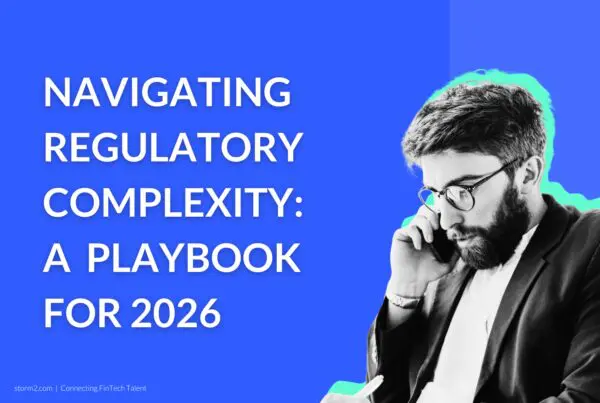Blockchain technology and the infrastructure supporting it continues to evolve at a rapid pace, quickly transforming how industries approach security, transparency, and decentralized operations. In 2026, its influence stretches far beyond crypto – spanning fintech, gaming, supply chain, insurance, and even government applications.
This year’s leading US blockchain firms are not just adapting to this new paradigm; they’re defining it.
But first, what actually is blockchain?
What is Blockchain?
A Blockchain is a distributed database that is shared by computer network nodes and stores data in digital form. Blockchains are well known for their critical role in keeping a secure and decentralised record of transactions in cryptocurrency systems like Bitcoin In the absence of a trusted third party, it ensures the fidelity and security of a data record and builds confidence.
We have a more in-depth article explaining the blockchain here, if you’re interested in learning more.
2026’s Most Influential US Blockchain Firms
In 2026, blockchain’s expansion continues to redefine trust in digital financial ecosystems. With new advancements in scalability, compliance, and interoperability, these 10 companies demonstrate how American innovation is steering blockchain toward mainstream adoption.
1. Chainalysis
Based: New York | Founded: 2014
Chainalysis continues to be the backbone of blockchain trust and transparency. As the leading provider of AML, KYC, and crypto investigation software, its technology underpins compliance frameworks used by global banks, governments, and law enforcement agencies.
In 2025, Chainalysis introduced AI-driven enhancements to its Reactor and Data Solutions platforms, making real-time transaction monitoring even more precise. Partnerships with institutions like Lead Bank have enabled financial firms to confidently manage crypto exposure while maintaining regulatory alignment. As the “trust layer” for blockchain data, Chainalysis has cemented its role as an indispensable force in securing the future of digital finance.
2. Coinbase
Based: San Francisco | Founded: 2012
Still the most recognizable name in US crypto, Coinbase remains at the center of Web3 adoption. Its influence spans both consumer and institutional markets, offering a trusted on-ramp for millions entering the digital asset ecosystem.
Going into 2026, Coinbase doubled down on two fronts: institutional finance and blockchain infrastructure. Coinbase Prime continues to attract hedge funds and enterprises integrating digital assets into their portfolios, while its Layer 2 network, Base, has become a hub for developers building decentralized apps and services. From staking and wallets to on-chain identity, Coinbase is shaping what compliant, user-friendly blockchain participation looks like in the United States.
3. ConsenSys
Based: Fort Worth, TX | Founded: 2014
ConsenSys is the engine room of the Ethereum ecosystem. Known for building MetaMask and Infura, the company provides the core tools developers rely on to connect to and scale decentralized applications.
In 2025, ConsenSys expanded its infrastructure with the launch of Linea, a zero-knowledge Layer 2 network designed to make Ethereum faster and cheaper without compromising decentralization. This innovation positions ConsenSys as the quiet powerhouse behind Web3, powering wallets, DeFi platforms, and enterprise applications that run on Ethereum every day.
4. Circle
Based: Boston | Founded: 2013
Circle has become synonymous with the digital dollar. As the issuer of USD Coin (USDC) – the most widely regulated and transparent stablecoin; Circle is reshaping how money moves globally.
With regulators now providing greater clarity in the US, Circle’s leadership in transparency and reserves reporting sets the benchmark for stablecoin accountability. In 2026, USDC continues to underpin payments, remittances, and cross-border commerce for major fintechs and enterprises alike. Circle’s focus on interoperability and compliance has turned it into a cornerstone of blockchain-based financial infrastructure.
5. Solana Labs
Based: San Francisco | Founded: 2018
Solana Labs remains one of the fastest blockchains in the world, known for its Proof of History consensus that enables lightning-speed transactions with minimal cost. Its ability to scale without sacrificing performance has attracted developers across DeFi, gaming, and consumer tech.
In 2025, Solana took its innovation a step further with the Seeker smartphone which is embedding blockchain infrastructure directly into hardware. By merging high-performance blockchain with consumer electronics, Solana is bridging the gap between Web3 functionality and mainstream usability, positioning itself as the “mobile-first” blockchain for the next decade.
6. Ava Labs
Based: Brooklyn | Founded: 2020
As the creator of the Avalanche blockchain, Ava Labs is pioneering a new standard for customizable and compliant blockchain networks. Its subnet technology allows enterprises to build dedicated blockchains tailored to specific needs – from financial institutions launching tokenized assets to gaming companies designing their own economies.
Going into 2026, Avalanche’s focus on speed, energy efficiency, and regulatory readiness made it one of the most enterprise-adopted networks in the US. Its partnerships in fintech and asset tokenization reflect a shift from experimentation to large-scale blockchain deployment across sectors.
7. Ripple
Based: San Francisco | Founded: 2012
Ripple continues to lead the modernization of global payments. Originally known for its cross-border transaction solutions, the company has evolved into a full-fledged blockchain infrastructure provider, powering settlement networks for banks and central banks worldwide.
In 2025, RippleNet expanded its scope to include tokenized assets and digital currencies, bridging traditional banking with blockchain liquidity. Despite ongoing regulatory challenges, Ripple remains a cornerstone of blockchain-based finance, driving efficiency and interoperability across borders and asset classes.
8. Mythical Games
Based: Los Angeles | Founded: 2018
Mythical Games is redefining what it means to own digital assets in gaming. Through hit titles like NFL Rivals and its Mythos platform, Mythical Games allows players to truly own in-game items and trade them across ecosystems – blending entertainment IP with blockchain utility.
In 2025, Mythical’s approach to seamless Web3 integration helped push blockchain into the mainstream gaming conversation, replacing traditional microstransactions and collectables. By prioritizing user experience and developer flexibility, Mythical has proven that digital ownership can enhance, rather than disrupt, the traditional gaming model.
9. Re
Based: San Francisco | Founded: 2022
Re is rewriting the rules of reinsurance through blockchain, with a decentralized reinsurance platform built on Avalanche which allows investors to fund insurance pools transparently and trade risk directly on-chain.
In an industry known for opacity and inefficiency, Re’s model introduces liquidity and accessibility, unlocking a new asset class for investors while modernizing how insurers manage and distribute risk. By bringing reinsurance to the blockchain, Re has positioned itself as one of the most practical and impactful applications of decentralized finance in 2026.
10. Aptos Labs
Based: Palo Alto | Founded: 2021
Aptos Labs was born from Meta’s abandoned Diem project, but it has since forged its own path as one of the most advanced Layer 1 blockchains in operation. Built with the Move programming language, Aptos delivers exceptional performance and safety, drawing major developers and enterprise partners.
In 2025, Aptos deepened its partnerships with financial service providers to power scalable, secure blockchain solutions. Its focus on developer tools, scalability, and interoperability has made it a key competitor among next-generation blockchains designed for real-world adoption.
The State of Blockchain in 2026
The narrative has shifted: blockchain isn’t just about speculation anymore, it’s infrastructure. US firms are building products that help money, data, and ownership move securely in real time. Regulatory frameworks are maturing, capital is flowing back into the sector, and enterprises are quietly adopting blockchain as part of their core systems.
Hiring for Blockchain Growth
At Storm2, we partner with blockchain startups and scale-ups leading the next wave of innovation. From protocol engineers to compliance leaders and DeFi product managers, our specialists connect companies with the talent that understands this space from the ground up.
If you’re growing a blockchain business, or looking to join one shaping the future, let’s talk about how Storm2’s Blockchain & Crypto recruitment team can help you build the team that takes it there.






